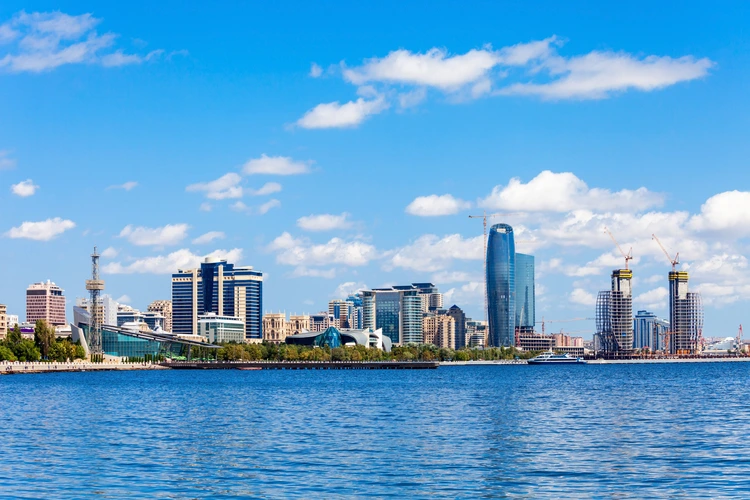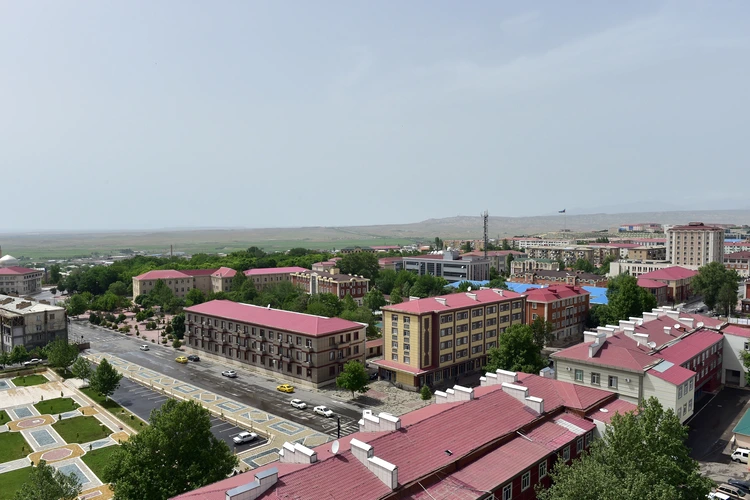

New corridor linking Azerbaijan to its exclave is being hailed as a win for peace – but it could just as easily ignite geopolitical tensions

By
Given that you’re reading this esteemed publication, it’s possible you are, or have been, an intrepid traveller. If so, you’ll be intrigued to learn of a new route for your travel. Be quick – it’s off the beaten track, but possibly not for long.
You may one day make an expedition along the Trump Route for International Peace and Prosperity (TRIPP). The name may lack the romance of the Silk Road or the Via Appia, but if it becomes a reality, it’s destined to be of great geopolitical consequence.
Check out our related reads:
The TRIPP will connect Azerbaijan with its exclave Nakhchivan, 40 kilometres away, across Armenia. The route, often referred to as the Zangezur Corridor, is a flat piece of Armenian land with a river running through it along the border with Iran. It’s part of this summer’s US-brokered framework agreement between Azerbaijan and Armenia. The deal marks a defining moment in the long-standing conflict between two nations that have fought a series of wars since the late 1980s.
The main issue was Nagorno-Karabakh, a region in Azerbaijan that had an ethnic Armenian majority population and broke away from Azerbaijan. The most recent conflict (2023) resulted in most of the Armenian population fleeing and Azerbaijan taking full control.
Both countries should benefit from the development of the corridor, as will theUSA, which has an exclusive 99-year lease to develop gas, oil, rail and fibre-optic links along it. Azerbaijan’s current land route to its Nakhchivan exclave is a rusty rail track and bumpy road through Iran. The Trump route will build a modern road and rail link into the exclave, which will then connect all the way to Turkey.
This will unlock new trade flows for both countries and ensure substantial transit revenues for Armenia. The proposed deal has also improved Armenia’s relations with Turkey, which is notable given that their joint border has been closed since 1992.
The White House frames the project as an economic ‘win–win–win’. In reality, it’s one that gives Russia a headache and Iran a migraine. For several centuries, the Russians, Turks and Iranians have competed for influence in the region. Russia’s grip was slipping even before the Ukraine war, Iran is reeling from
its strategic losses over the past two years and Turkey is the rising power in the area. Both Armenia’s and Azerbaijan’s relations with Russia have nosedived this decade. Enter the Americans – into a region where they have long struggled to gain influence.
If TRIPP is built, Russia’s leverage will further diminish, while Iran will see an American-built economic corridor emerge along it border, possibly with private American security personnel deployed to help guard it.
Tehran has warned that the corridor could turn into a ‘graveyard for Trump’s mercenaries’. Armenia’s president, Pashinyan, says security on roads will be ‘provided by Armenia, not by any third country’, but there’s room in that statement for private security forces to be ‘overseen’ by Armenia. Even without an overt US presence, it still allows Azerbaijan to bypass Iran to connect to Nakhchivan, and boxes in Iran’s room to manoeuvre.
Subscribe to Tim Marshall’s Substack here: https://substack.com/@itwitius

Another reason Tehran is concerned is because up to a quarter of Iranians are ethnic Azeris, many of whom live in the Iranian province of West Azerbaijan, which borders Nakhchivan. If TRIPP helps to grow Azerbaijan’s power, there could be a knock-on effect in relations with ethnic kin across the border.
Moscow and Tehran will both try to undermine the deal, and there remain stumbling blocks before the framework agreement becomes a final peace treaty (scheduled for late 2026). Of the two, Moscow has more cards to play. It supplies energy to Armenia, controls its only rail company, influences the Armenian Apostolic Church (which opposes the unpopular Pashinyan), and has two military bases in the country.
To get to a final deal, Pashinyan must win a referendum approving a change in the constitution to accept the loss of Nagorno- Karabakh. That is a pot Russia can stir, especially as there is no robust monitoring group overseeing the ceasefire along the un- demarcated border. A military skirmish could easily escalate and torpedo the deal.
Nevertheless, President Aliyev of Azerbaijan and President Pashinyan want it to succeed. At the Washington DC framework signing last month, both flattered Trump by nominating him for the Nobel Peace Prize and naming the corridor after him. That helped get TRIPP on track, but there’ll be hard work ahead to ensure it lives up to its full name and not just the acronym. Safe travels!




